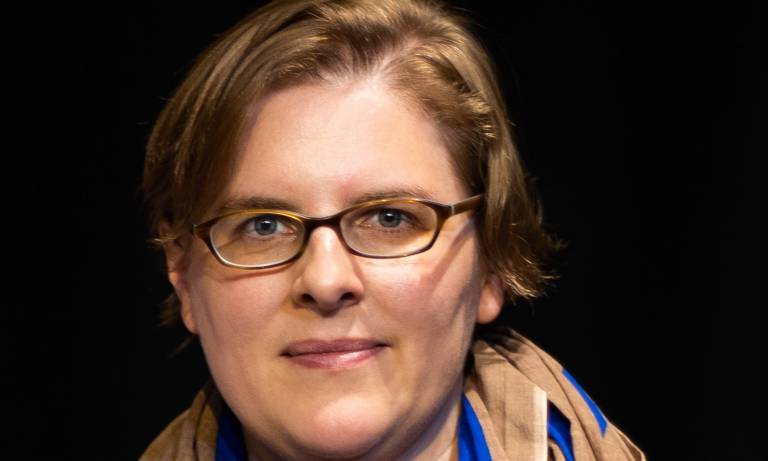ICN Professor Antonia Hamilton awarded €150,000 ERC grant
14 January 2020
Professor Antonia Hamilton, UCL Institute of Cognitive Neuroscience, has been awarded with a €150,000 European Research Council research grant for a project that aims to improve feedback from education approaches for autistic children.

Autism affects 1 child in 89 in Europe, with costs of up to €32,000 per child per year, and approximately 50 per cent of children with autism also have learning difficulties. Schools for children with these issues provide teaching and various types of daily living skills but measuring how a child makes progress in this education programme remains challenging.
A new tool that can give a continuous measurement of how children with autism engage with and benefit from different educational activities would be invaluable to teachers, parents and researchers.
Professor Hamilton’s SocSensors project aims to solve this problem by creating a wearable sensor system that can monitor autistic children with learning difficulties as they engage in classroom activities and provide feedback to teachers and parents.
“I’m delighted to be awarded this grant and to have a chance to take our research out of the lab and into the classroom. We believe this new technology can make an important difference to children and we are excited to take the project to the next stage,” said Professor Hamilton.
“This will allow users to quantify the social engagement between two people engaged in a physical activity such as play, an important skill for those with autism.
“It will let teachers track how much each child is engaged in each lesson and allow them to tailor lessons to the child. This should help teachers optimise their lessons and have more time to attend to the children.”
According to Professor Hamilton, most research on children with autism focuses on more able children who need support in a mainstream school, but children who have autism with learning difficulties have often been neglected by researchers.
“These children have very limited language and substantial support needs, which makes it hard to devise tools to help them. The SocSensors system is a tool that works by movement and is one of the first tools that is accessible to all children with autism.
“In this project, we hope to show how it can support autism education and help children and their teachers get the most out of the school day.”
Professor Hamilton’s current research interests include how and why people imitate each other, how social skills differ in autism, and the neural mechanisms of social interaction. This project builds on the previous ERC grant gained by the team, INTERACT, which examined how people with and without autism imitate and interact.
 Close
Close

